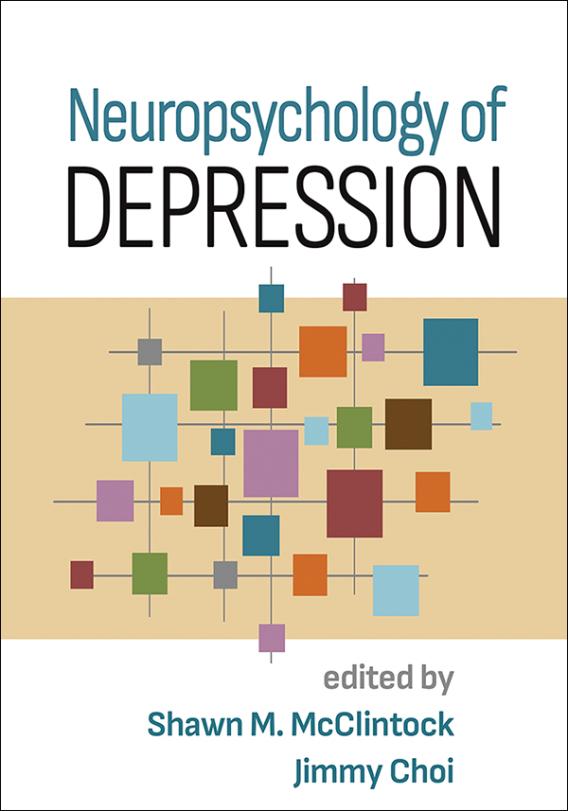
Timely and authoritative, this unique volume focuses on neurocognitive aspects of depression and their implications for assessment, evaluation, clinical management, and research. Experts in the field explore the impact of depression on executive function, learning and memory, working memory, and other critical capacities, and present cutting-edge assessment tools and procedures. The neurocognitive effects of widely used antidepressant treatments are reviewed, from psychotropic medications and evidence-based psychotherapies to established and emerging neuromodulation technologies. Practical aspects of working with adults across the lifespan with depression are addressed, including ways to strengthen treatment engagement and adherence, and to incorporate cultural considerations.
Reviews
Quote from Choice Reviews
“Recommended. Upper-division undergraduates. Graduate students, faculty, and professionals.”
Quote from Kathleen A. Welsh-Bohmer, PhD, ABPP
“A masterpiece—I anticipate that this book will quickly be adopted as an authoritative, comprehensive, and essential resource for behavioral health clinicians and scientists. The book is well written, highly informed, and accessible. Chapters take the reader on a journey that encompasses the clinical conceptualization and expression of depression and associated neurocognitive disorders, the neurobiology of these disorders, and the broad array of therapeutic options and approaches. I quite literally could not put this book down, and will recommend it to my colleagues and students as a 'go-to' resource when diagnosing and treating patients with mood disorders.”
Quote from Journal of ECT
“Each chapter is written by one or more outstanding experts in the field and is a self-contained, fully referenced review of its particular topic. The editors have done an excellent job of making formats and writing styles compatible; each chapter has a helpful concluding summary, many with very specific clinical recommendations. This volume will be of great interest and utility to clinicians and researchers alike. It is a user-friendly yet comprehensive reference source that psychiatrists, psychologists, and any mental health professional who deals with depression will want to have on their office bookshelf. Drs. McClintock and Choi have done an outstanding job of tackling the subject of the neuropsychology of depression; their text will surely become a classic in the field.”
Quote from Yana Suchy, PhD, ABPP-CN
“This book leaves no stone unturned. With exquisite depth and extraordinary breadth, it seamlessly integrates knowledge from neuropsychology, psychiatry, and cognitive neuroscience. The impressive slate of contributors cover all aspects of depression—from cultural influences to neurobiological underpinnings; from theoretical perspectives to behavioral, medical, and neurocognitive presentations; and from assessment methods to traditional and experimental treatments. Chapters are well organized and read effortlessly, while providing a wealth of relevant and useful information. All health care providers who work with adults with depression will appreciate this book, not only as a reference guide, but also as an inspiration for approaching this perennial disorder comprehensively, innovatively, and with compassion.”
Quote from British Journal of Psychiatry
“The clinical acumen of the authors is evident….A comprehensive, evidence-based essential.”
Quote from George S. Alexopoulos, MD,
“This is a tour-de-force examination of the neurocognitive dysfunctions of depression, written by a 'dream team' of distinguished scientists. The book is unique in providing a sophisticated, in-depth view of the most recent neurobiological and clinical findings on depression with a clarity that makes them accessible to investigators and clinicians. Beyond dissecting the neurocognitive origins of depression, the book offers a comprehensive account of psychosocial and biological treatments that makes it an exceptional guide for students and for physicians, psychologists, and other professionals encountering depression.”